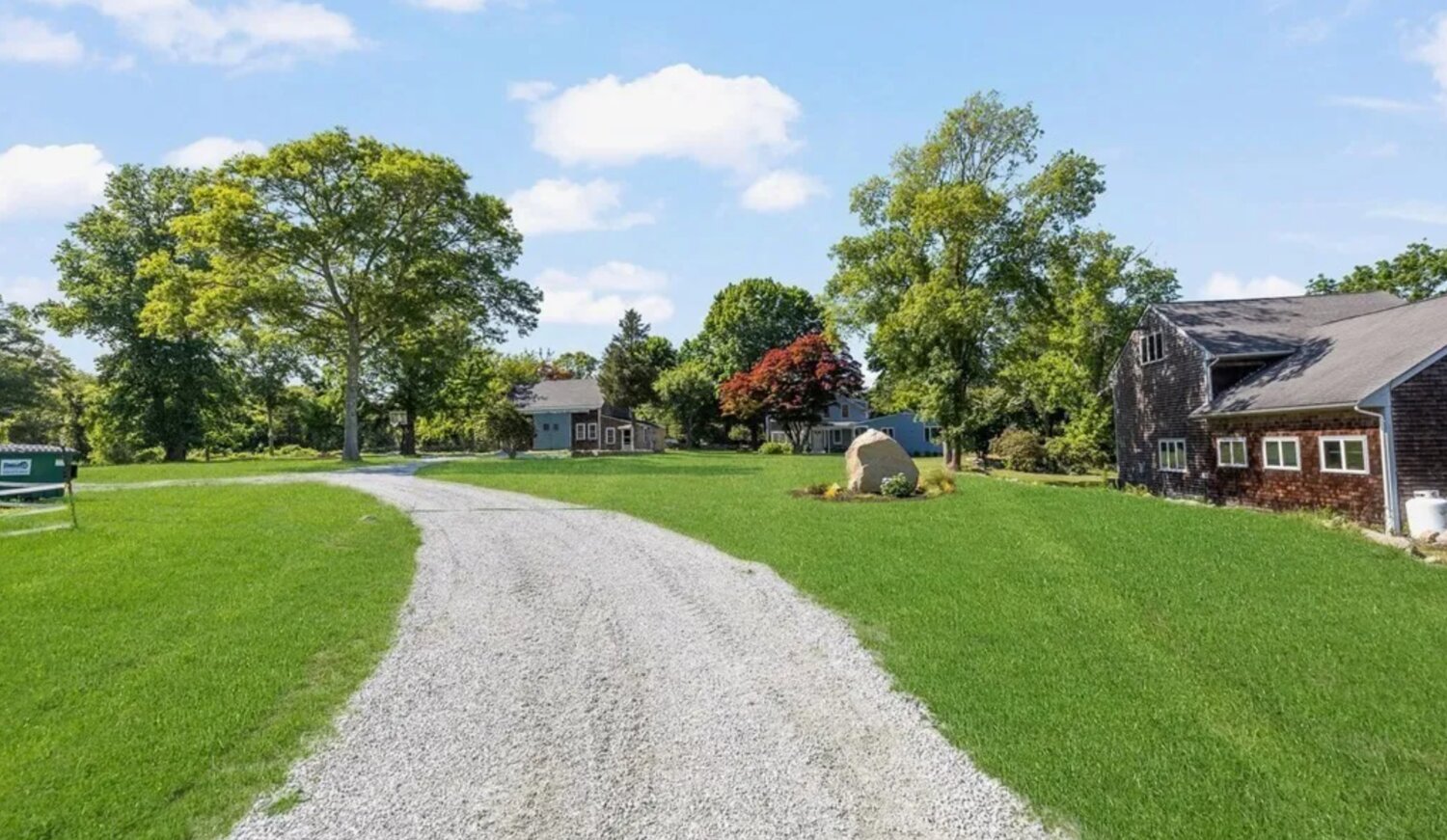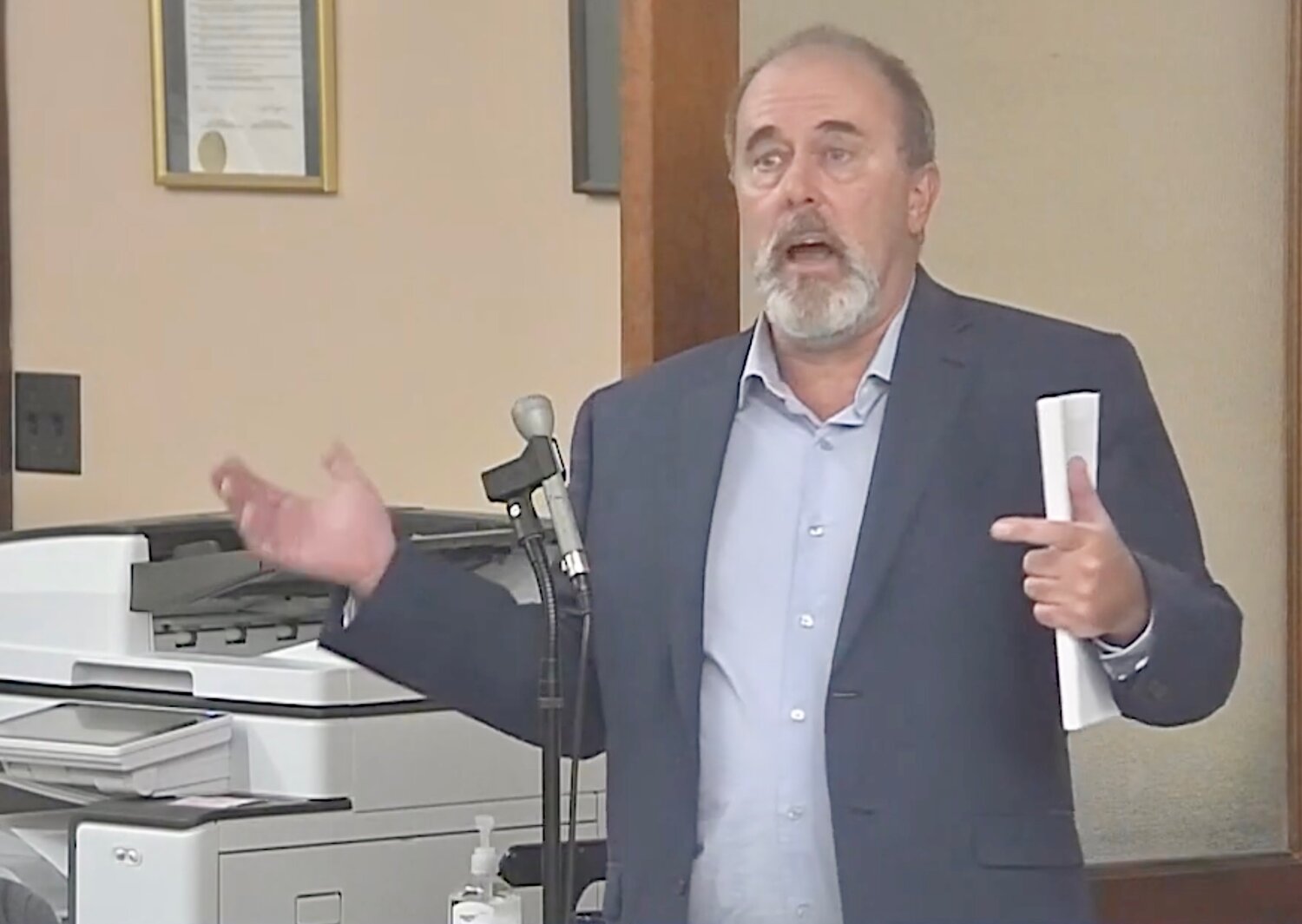Old Harbor residents: Teen plan is no school
Select board rarely entertains planning board request to comment on plans, but has in Old Harbor Road residential/treatment/educational plan
Though they seldom comment on projects before the planning board, members of the Westport Select Board are making an exception in the case of a proposed live-in school facility that has generated a …
This item is available in full to subscribers.
Please log in to continue |
Register to post eventsIf you'd like to post an event to our calendar, you can create a free account by clicking here. Note that free accounts do not have access to our subscriber-only content. |
Day pass subscribers
Are you a day pass subscriber who needs to log in? Click here to continue.
Old Harbor residents: Teen plan is no school
Select board rarely entertains planning board request to comment on plans, but has in Old Harbor Road residential/treatment/educational plan
Though they seldom comment on projects before the planning board, members of the Westport Select Board are making an exception in the case of a proposed live-in school facility that has generated a fair bit of push-back in a quiet section of town along the Little Compton town line.
At last Monday's meeting, select board members voted unanimously (with Ann Boxler absent) to send a letter to the planning board expressing their concerns about the project, to transform a 10-acre residential and farm property at 435 Old Harbor Road into a live-in school and substance abuse rehabilitation facility for adolescents aged 13 to 17.
The plan, which would require no new construction, was informally introduced before the planning board in early September, and will be back before that board for formal site plan review on Tuesday, Nov. 28, even as an appeal filed by one resident awaits action before the zoning board of review.
While they have no authority over the issue and planning board members may do what they wish with their letter, “we could certainly indicate that we are concerned,” select board chairman Richard Brewer said last Monday.
“I have concerns about the zoning, the safety, the use, and I hope they (planning board members) are wise in their consideration of the impact,” added select board member Steve Ouellette.
The plan
At the heart of residents’ concerns is developer Ken Weber’s assertion that the facility can be classified by the town as a school. Under Westport zoning bylaws, educational uses are allowed in the residential/agricultural district in which 435 Old Harbor sits, and need only earn planning board site plan approval.
Nearby residents contend that the for-profit development’s primary aim is not to educate but to provide mental health and substance abuse counseling and treatment for teens, but is being couched as a by right school to avoid the more stringent town review that proposing a non-conforming use would entail.
Despite talk of NIMBY-ism in the neighborhood, “I believe that the concern that we have is not about the merits of this facility,” 12 Tee Lane resident Peter Cerilli, an attorney, told the select board. “There is concern that that process is not being followed (and is) being skirted by characterizing something as an educational facility when it isn’t. The debate about the facility is something that should take place ultimately in front of the zoning board.”
How does it fit?
Correspondence between town officials and the developer going back six months seem to indicate some uncertainty on that use, at least in the project’s earliest stages.
Weber, of Hyannis, Ma., is the founder of Behavioral Health Consulting Partners of North America, and has previously developed adult substance abuse treatment facilities on the Cape, in the Jacksonville, Fla. area, and according to a City of Tecumseh, Mich. press release, is currently proposing a 'behavioral health solutions center' in that city.
In early April, Weber and his attorney, Richard Burke, reached out to town planner Michael Burris and zoning enforcement officer Ralph Souza, inquiring about local zoning issues and asking for guidance on how to present their plan before the town.
In an e-mail sent to Souza on Monday, April 3, Weber wrote that “our use would likely be most closely related to” a nursing home, a use that is also allowed by right in the residential/agricultural zone.
“In laymen’s terms, people would be sleeping, eating, receiving counseling, recreation and education in a residential/farming environment. We would provide the same level of care as (in a nursing home) but for adolescents,” and the facility would be licensed by the Massachusetts Department of Public Health, he wrote.
Burris responded via e-mail a day later, noting that he had read through the town’s zoning codes and tables and determined that in his opinion, the proposed use is closer in definition to a “sanitarium” than a nursing home.
Though nursing homes, educational facilities and sanitariums are all allowed by right in the residential/agricultural zoning district, none are defined in any depth in the town’s bylaws. Despite that, Burris wrote that he believes the latter designation fits, as “historic use of the term (sanitarium) describes a retreat or institution for treating chronic illnesses — I find that would include youth substance abuse disorder treatment.”
For Weber to proceed, he wrote, he would have to contact Souza, the building official, and ask for the issuance of an official determination on the nature of the proposal, whether it is a by right use, and what category applies.
Determination, or not?
Burke, Weber and Souza later met in person to talk about the plan. Then in mid-May, Burke wrote to the building official and asked for a determination that the proposed use is educational in nature; there was no mention of Weber’s earlier assertion that ‘nursing home’ was the closest use, and no mention of Burris’s assertion that the ’sanitarium’ designation was more accurate.
“‘Educational Uses’ correctly describes the proposed use,” Burke wrote, adding that the facility would be licensed by Massachusetts as a “non-detoxification and adolescent treatment rehabilitation facility, with non-licensed adolescent and young adult services for education.
Souza responded in writing on Monday, June 12. In his three-sentence response, he wrote that “the use of the property at 435 Old Harbor Road for educational service would be allowed” as long as the planning board issues site plan approval.
This week, Burris told Shorelines that Souza's letter was not a formal determination but instead, "a preliminary, non-binding assessment of the land use type, not an official town decision where there would be rights of appeal. The latter would occur when the applicant submits a formal permit request with the building inspector and he acts on that application."
Still, Weber and Burke have referred to the letter on several occasions, referring to it as a determination that the town concurs that the venture can be classified as an educational use.
Little happened outwardly after the letter was sent, until Burke and Weber appeared before the planning board for an informal review on Tuesday, Sept. 5.
At that meeting they referenced Souza’s letter, but board members did not question them in depth on that aspect of the plan, keeping their discussion mostly to matters involved in typical site plan review — parking, layout, drainage and other infrastructural issues.
Resident appeals
Few residents in the area knew about the plan prior to that first informal meeting, as there was no requirement that abutters be notified. But after word got out, a group of neighbors loosely organized and started digging in to the issue.
One, Kevin McGoff of 233 Old Harbor Road, filed an administrative appeal of Souza’s determination. A by right educational use clearly does not apply in this case, he contends in the appeal, writing that the plan is a for-profit venture that should face zoning review:
"The proposed three different commercial for-profit uses ... are not affirmatively allowed (and are therefore prohibited) by the Westport by-laws," McGoff wrote. "The administrative actions by the building inspector ... seem to be based on a one-sided presentation of the intended uses." And while they have been portrayed as purely educational, "that is clearly not true."
Therefore, he said, Souza's administrative actions should be reversed.
The zoning board first discussed McGoff's appeal at its Wednesday, Nov. 1 meeting, and after some discussion over whether he had standing to file an appeal in the first place, agreed to listen to the dozen or more residents who came out for the meeting. Ultimately, the board continued McGoff's appeal until December, and he said at the time — and confirmed after the meeting — that board members' issues with his appeal, including the lack of direct abutters signed on to it, would be addressed before the board's next meeting on the matter, currently scheduled for Wednesday, Dec. 6.
What's next?
Meanwhile, the planning board is expected to consider Weber's request for site plan approval at a meeting scheduled for Tuesday, Nov. 28, and the select board letter was received by the board last Thursday. Copies were also sent to the building inspector and zoning board, per a request of select board member Shana Shufelt.
It reads:
"The Board of Selectmen heard public comments and concerns related to Public Safety and Neighborhood Impacts. The Board of Selectmen requests that the Planning Board consider emergency vehicle response and traffic flow for this site. The Board also requests that specifics as to the proposed use be received to determine if the use is an exempted educational use."









